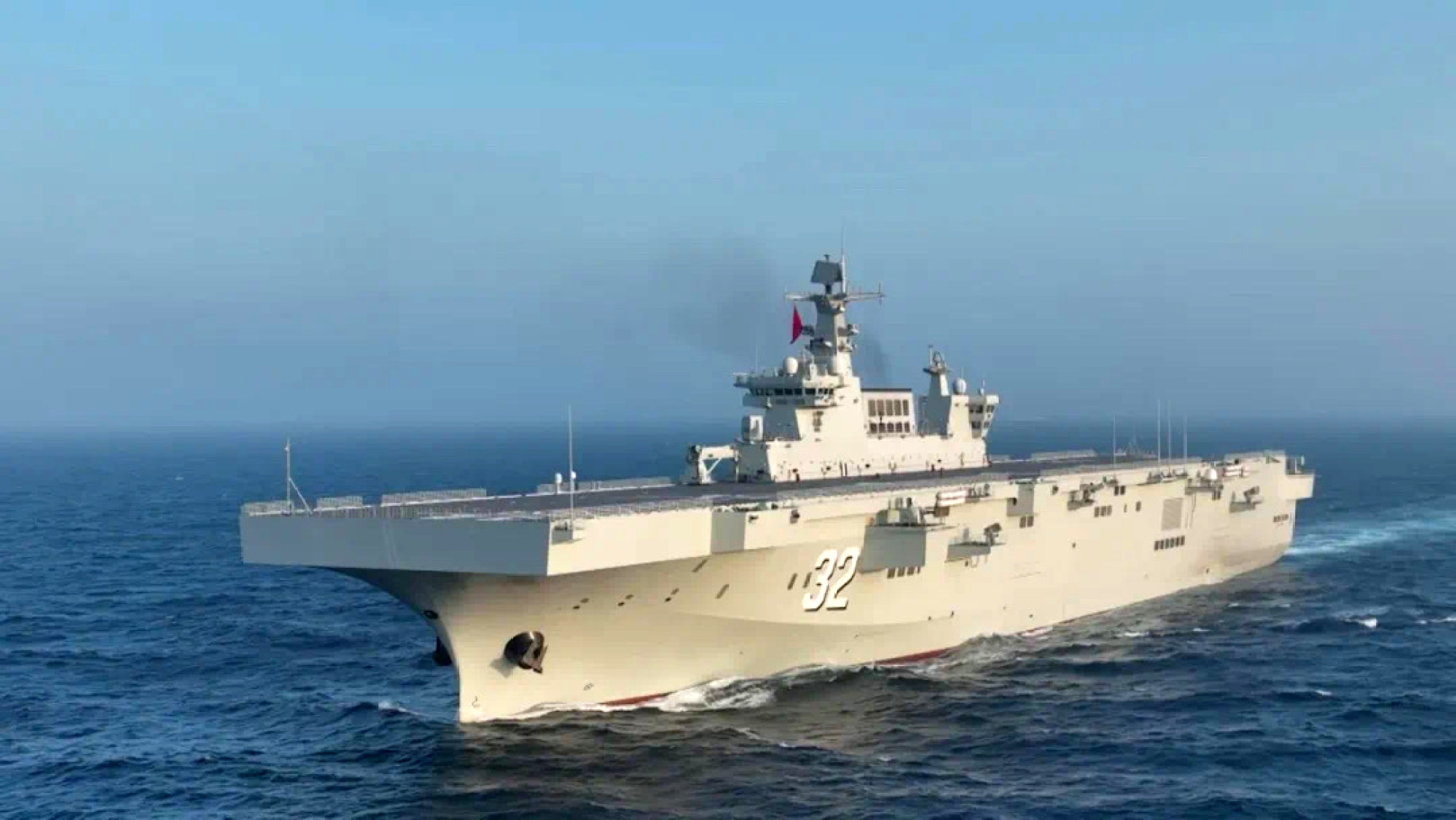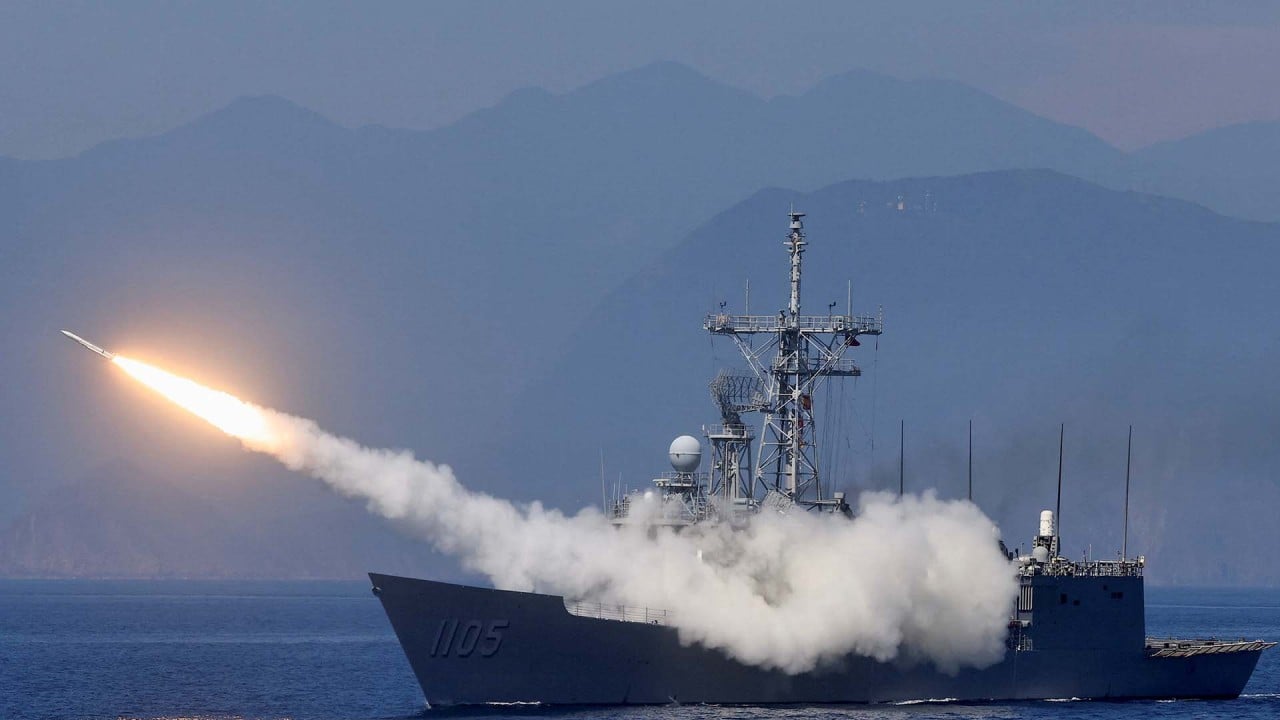
Chinese military blockade in focus as Taiwan prepares for annual Han Kuang war games
- Taiwan’s biggest annual war games to start next month, and will feature the usual computerised and live-fire segments, defence ministry announces
- Focus for live-fire drills based on threat of PLA attack and its ‘war games surrounding Taiwan’, combat planning chief Major General Lin Wen-huang says
As in previous years, the upcoming 39th edition of the Han Kuang drills will be held in two stages, with the computerised war games to be held from May 15 to 19, and the live-fire exercises from July 24 to 28.
The focus for the live-fire drills will be on combat force preservation, maritime interception, and protection of major facilities, including sea and air ports, the ministry said on Wednesday. Mobilisation of the civil defence force will also be tested.
“Our drills are based on the threat of the [PLA] attacking Taiwan and its war games surrounding Taiwan,” Major General Lin Wen-huang, the ministry’s combat planning director, said.
PLA jets and warships practised precision strikes and blockades earlier this month in its latest large-scale exercises around Taiwan. The three-day live-fire drills were launched after Taiwanese President Tsai Ing-wen defied Beijing’s warnings against meeting the US House speaker in California.
Beijing views Taiwan as breakaway territory that must be brought back under its control, by force if necessary. It is opposed to the self-ruled island having formal exchanges with foreign governments, and condemned the Tsai-McCarthy meeting on US soil as a violation of its sovereignty.
The United States, like most countries, does not see the island as a sovereign state, but is against any forcible change of the status quo.
Chinese military operations around Taiwan have intensified since August, when McCarthy’s predecessor Nancy Pelosi visited the island despite repeated warnings from Beijing.
That provoked at least a week of unprecedented live-fire PLA drills around Taiwan, with ballistic missiles fired into its surrendering waters.
According to Lin at the Taiwanese defence ministry, the five-day computerised war games will be carried out round the clock, with troops using a US-built system to simulate joint, combined, and coalition civil-military operations.
Asked whether the drills will simulate a response to the PLA’s Shandong carrier strike group, which was deployed near Taiwan during the drills following Tsai’s US stopover, Lin merely said the Taiwanese military would take into account various scenarios of PLA action.

Asked if the US would send observers to take part in the drills as it did before, Lieutenant General Chang Chun-chih said the training programme was part of military exchanges between the US and Taiwan.
“Such a programme will be carried out according to the schedule this year,” he said, without confirming or denying if there would be observers for the Han Kuang war games this time.
“We can connect with the ‘Five Eyes’ alliance through a confidential system,” Tsai Ming-yen told lawmakers when asked whether Taiwan had close intelligence cooperation with the US.
He declined to give further details.


